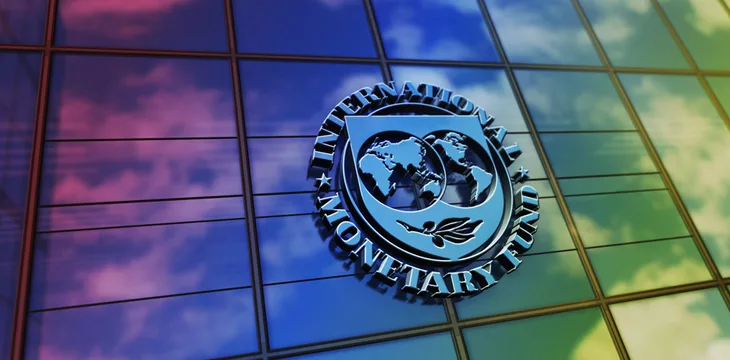|
Getting your Trinity Audio player ready...
|
The International Monetary Fund (IMF) has released a report reiterating calls for digital asset regulation across certain countries while, in a seeming rethink of previous comments, suggesting that an outright ban may not be an effective approach.
“A few countries have completely banned crypto assets given their risks, this approach may not be effective in the long run,” said the IMF in its report on the growing interest in central bank digital currencies (CBDCs) in Latin America and the Caribbean. It went on to say that the region should instead “focus on addressing the drivers of crypto demand, including citizens’ unmet digital payment needs, and on improving transparency, by recording crypto asset transactions in national statistics.”
This latest IMF stance contrasts with a February statement in which some of its directors indicated that “outright bans should not be ruled out.” This was still suggested as “not the first-best option,” but it seems some are reconsidering what has happened since February to get the IMF to a position where it now sees bans as ineffective.
The change of heart was likely influenced by a recent boom in the price of certain ‘crypto’ assets, notably BTC and Ethereum.
BTC’s price jumped following the world’s largest asset manager, BlackRock, registering a spot-market BTC exchange-traded fund (ETF). The firm submitted a preliminary prospectus—a document providing information to prospective shareholders about the company’s business, managers, strategic initiatives, financial statements, and ownership structure—for the proposed iShares Bitcoin Trust to the U.S. Securities and Exchange Commission (SEC) on June 15.
The SEC has denied similar requests, an example being VanEck’s attempt to offer a BTC ETF last year, so it’s quite possible that the regulator will reject BlackRock’s ETF as well. But even the prospect of the $9.1 trillion asset manager (as of Q1) getting involved in digital assets caused a rally in the market, with BTC exceeding its April high of just over $30,000 (per BTC) and Ethereum rising above $1900, from $1600 the day before Blackrock’s announcement.
The IMF did not mention this, or anything else, as a motivator for its seeming rethink on digital asset bans, but a resurgence in the market and interest from the world’s largest asset manager may have been enough to persuade the organization that such an approach would be untenable, or economically stifling.
Watch: SEC Commissioner Hester Peirce on Bitcoin Association’s Blockchain Policy Matters

 02-25-2026
02-25-2026 




